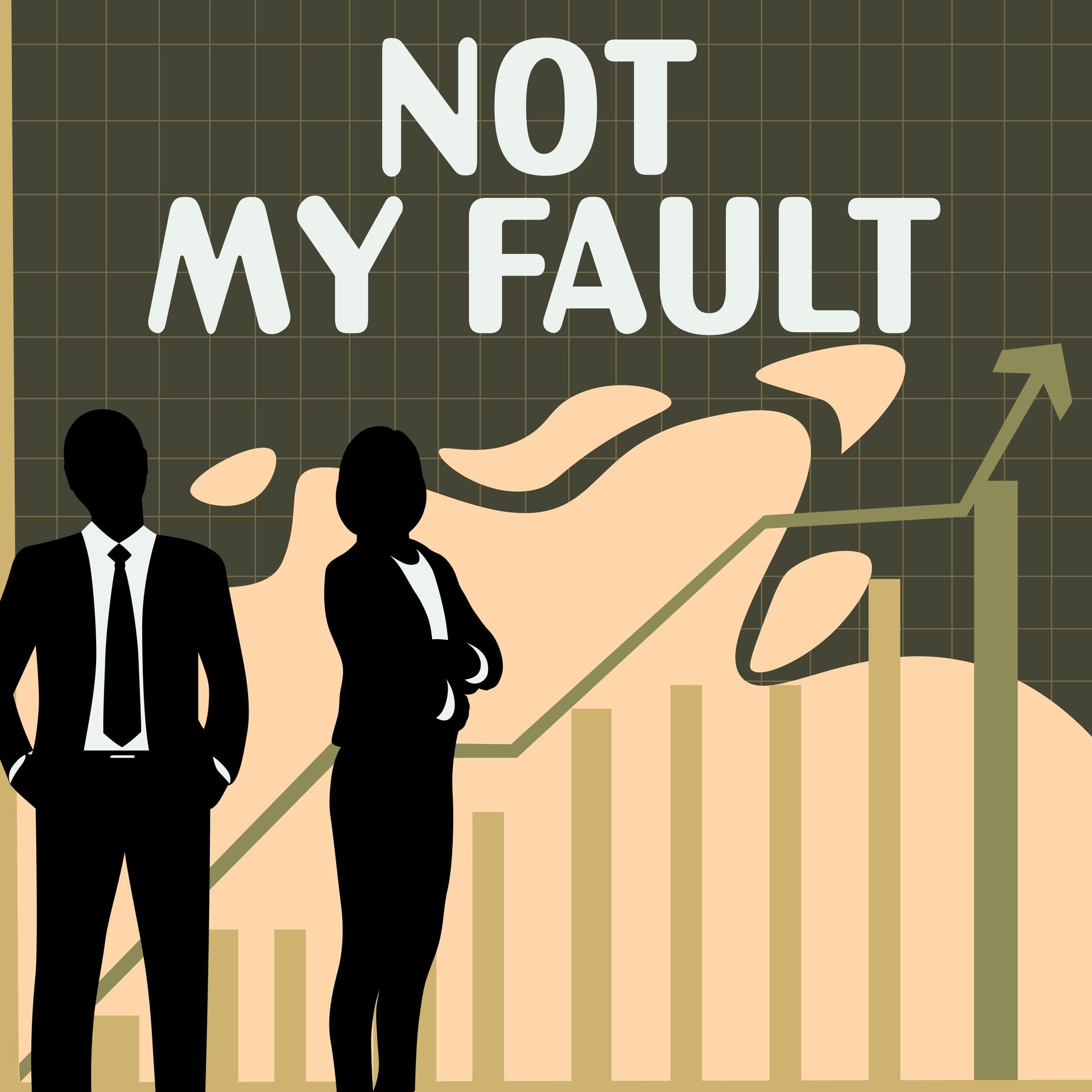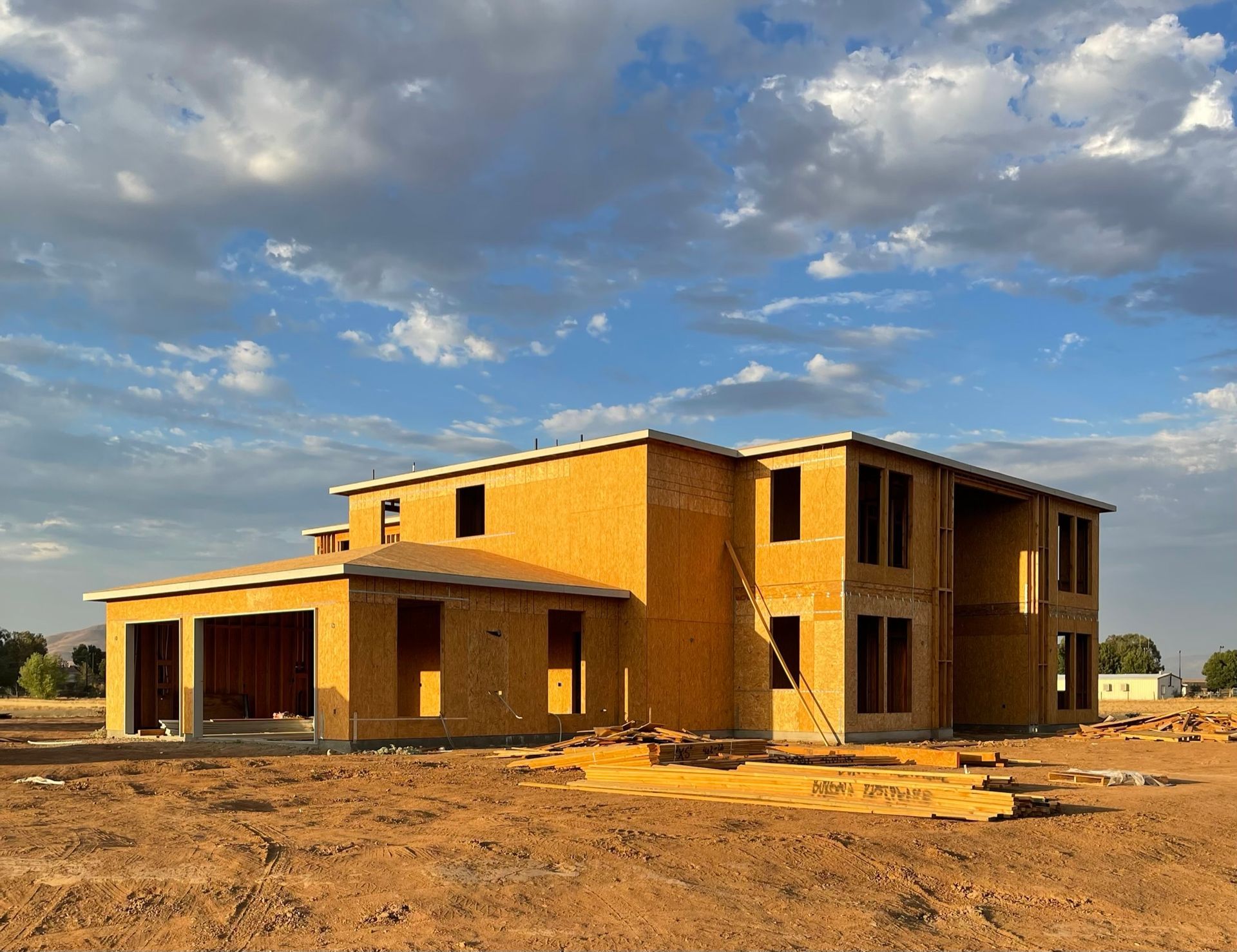Fire Rebuild Contractor, Los Angles. Guide 2025: How to Hire the Right Restoration Expert
Concept Design Group Design Build for Fire rebuild home
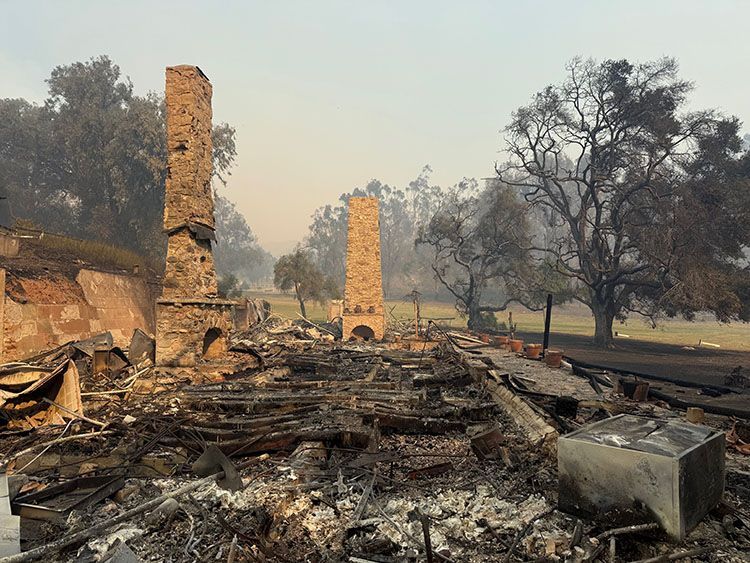
Pacific Palisades Home after fire
Fire Rebuild Contractor Guide [2025]: Choosing the Right Pro for Home Restoration A fire rebuild contractor helps you pick up the pieces after a house fire, handling everything from cleanup to reconstruction. These experts know what it takes to restore your home safely, working with you and your insurance company to keep your project on track.
Choosing the right contractor isn't just about fixing walls and replacing windows. It's about finding someone who listens, guides you through tough decisions, and brings your house back to life. With the right help, the road to recovery gets a lot smoother and less stressful.
What Does a Fire Rebuild Contractor Do?
When a fire uproots your life, a fire rebuild contractor steps in with a clear plan to guide you from damage to a fresh start. Their role goes far beyond basic repairs. These pros manage everything—from the first inspection to that final walk-through. Each step follows a proven path to restore homes safely and responsibly.
Assessment and Damage Evaluation
The journey starts with a detailed assessment. Fire rebuild contractors inspect every area touched by flames, smoke, and water. Their eyes catch problems you might miss, such as:
- Structural safety checks: They make sure support beams, floors, and roofs are steady and secure.
- Hidden smoke damage: Smoke can creep into walls, crawlspaces, and attics, bringing risks even after cleanup.
- Water damage: Firefighting often leaves behind soaked floors and walls, which can cause mold if ignored.
Contractors document everything, snapping photos and jotting notes, which helps create an honest repair plan.
Developing a Rebuild Plan
Once the full scope is clear, contractors get to work on a plan tailored for your home. This plan includes:
- Step-by-step work timeline
- Estimated budget for each stage
- List of needed materials
- Expected disruptions for your family
You’ll get clear answers about what needs fixing, how long it will take, and the costs involved. Reliable contractors talk through these details, so there are no surprises along the way.
Navigating Insurance Claims
Fire rebuild contractors also work closely with insurance adjusters. They know the paperwork game and help make sure claims are fair, complete, and quick. Here’s how they help:
- Thorough documentation: Photos, reports, and itemized lists support your case.
- Direct communication: They talk with your insurer to clarify what repairs are covered.
- Negotiation support: If disputes come up or quotes are in question, your contractor can step in to explain the work needed.
The right contractor keeps the insurance process moving, helping you avoid extra delays or lowball offers.
Restoration and Reconstruction Services
After paperwork and planning, the real work begins. This part brings your property back to life through:
- Demolition: Removing unsafe or ruined sections with care.
- Debris removal: Clearing ash, soot, and fire-damaged items from your home.
- Framing and rebuilding: Restoring walls, floors, and key structures to current codes.
- Finish work: Painting, installing floors, adding trim, and any custom touches.
- Final inspections: Walking with you and inspectors to confirm the job is done safely and correctly.
Every action focuses on safety, comfort, and lasting quality. You move from chaos to a home you can enjoy again.
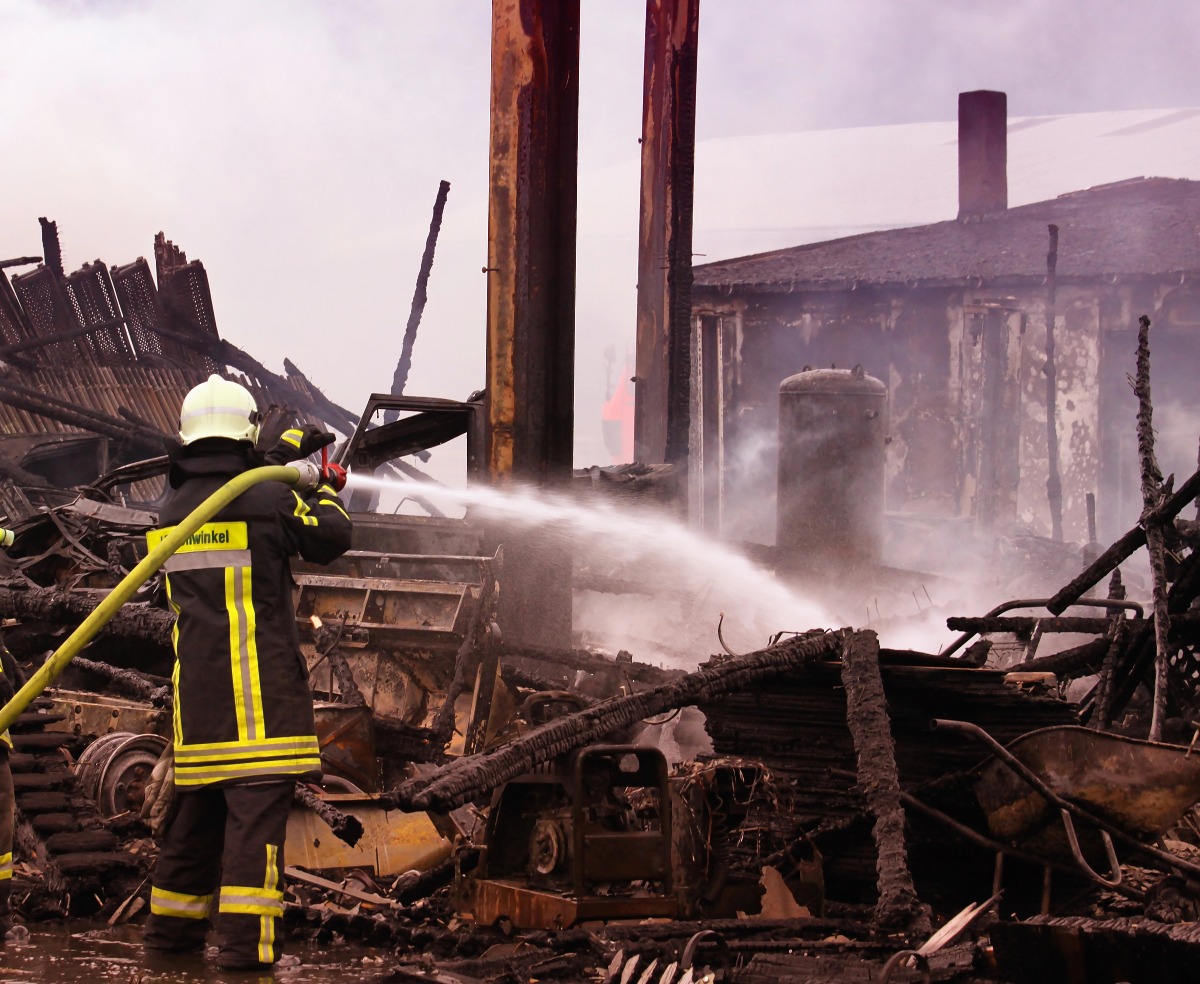
Firefighters working to extinguish the fire
Qualifications and Certifications of a Reputable Contractor
When your home needs rebuilding after a fire, you want more than just anyone swinging a hammer. Hiring the right contractor is like putting your trust in a seasoned guide after a storm. Their background, training, and documented experience give you real peace of mind as your house transforms from ruins to a place you can call home again.
Licensing and Insurance Requirements
You should always expect your fire rebuild contractor to have proper licenses and insurance. This isn’t just paperwork—it protects you from shoddy work and costly surprises down the road. Here’s what matters most:
- State or local contractor license: This proves they’re legally allowed to work in your area and understand local building codes.
- Liability insurance: Covers property damage or injuries that happen on the job.
- Worker’s compensation insurance: Pays for injuries to workers so you don’t get stuck with the bill.
- Bonding: Gives you financial safety if the contractor doesn’t finish the job or fails to meet requirements.
Never feel shy about asking for proof of these qualifications before you sign anything. A confident and trustworthy contractor will happily share the details.
Relevant Certifications and Training
Fire damage restoration takes a special set of skills, and reputable contractors know to back up their experience with strong certifications. Two of the most recognized credentials in this field are:
- IICRC (Institute of Inspection, Cleaning and Restoration Certification): Contractors with this credential know how to handle smoke, water, and structural repairs the right way. It shows they’ve studied safety, cleaning, and rebuilding techniques specific to fire and water damage.
- NFPA (National Fire Protection Association) Training: This badge means a contractor understands fire prevention codes and rebuilding safety standards.
These certifications aren’t just letters after a name. They’re proof your contractor keeps up-to-date with industry safety methods and restoration science.
Experience With Fire Restoration Projects
Book smarts matter, but hands-on experience truly sets top contractors apart. A strong background in fire restoration means your contractor:
- Keeps calm under pressure, solving real-world problems that arise after major fire damage.
- Knows how to spot hidden damage most others might miss, from burnt studs to lingering smoke odor in the walls.
- Has a track record of successful projects and satisfied homeowners.
Before you hire, ask to see a project portfolio or before-and-after photos. Check for solid references—past clients should be comfortable sharing their honest opinions about quality, communication, and timelines. An experienced contractor isn’t just rebuilding spaces, but restoring your peace of mind.
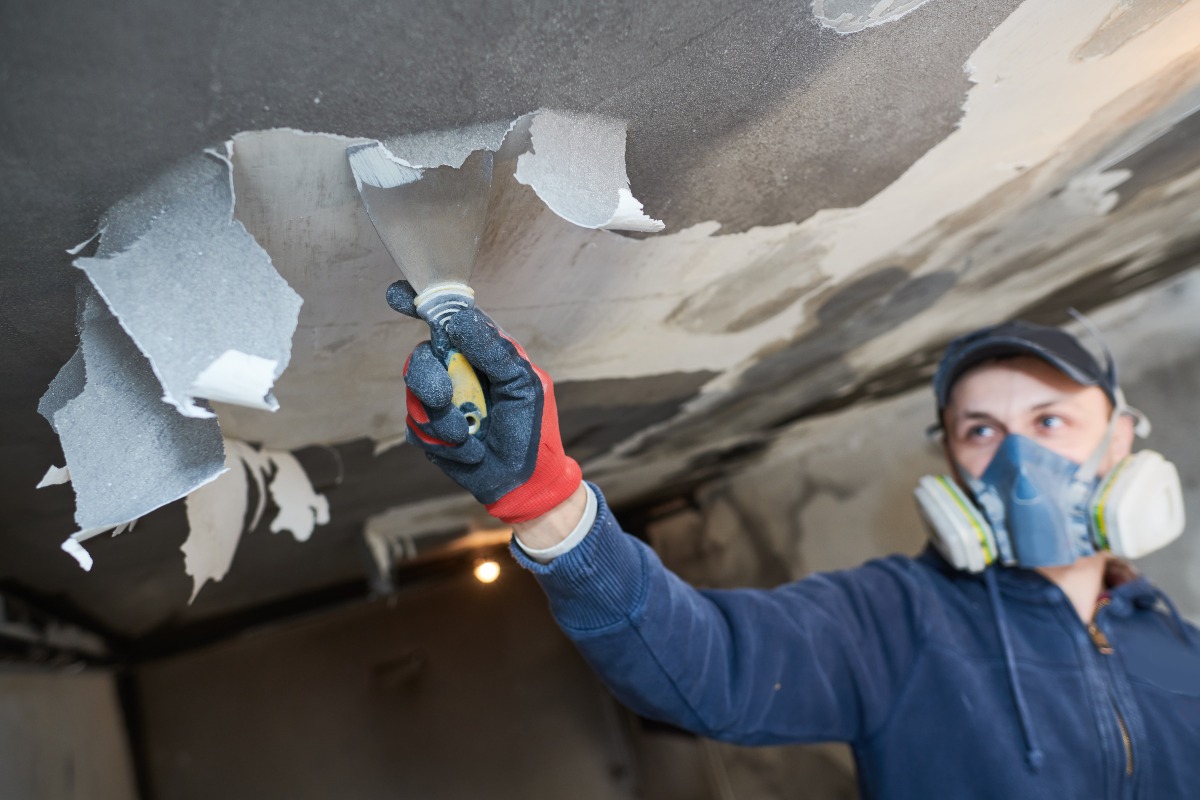
An expert try to clean the damaged area
Key Considerations When Hiring a Fire Rebuild Contractor
Choosing the right fire rebuild contractor can affect how smoothly your restoration project goes and how comfortable your home feels when the work is done. Taking extra steps to check credentials, understand paperwork, and set clear ground rules upfront helps set everyone up for success. Let’s break down the main areas that will help you hire with confidence.
Evaluating Contractor Reputation and Reviews
Hiring someone to rebuild your home is personal. You want someone you can trust, and the best way to get honest feedback is by checking their reputation.
Start with these steps:
- Ask for references: Any contractor worth your time should give you contact details for past clients. Reach out and ask about their experience, how problems were handled, and if they were happy with the final result.
- Read online reviews: Look at platforms like Google, Yelp, or the Better Business Bureau. Focus on patterns across reviews, not just one good or bad comment.
- Scan complaint records: Search your state’s licensing board and the BBB for complaints. Look for red flags, such as unresolved issues or a long list of unhappy customers.
It’s like checking under the hood before buying a car. You need more than promises; you need proof others got what they paid for.
Understanding the Contract and Scope of Work
Contracts are more than legal paperwork—they’re your backup plan if anything goes wrong. A good contract spells out everything up front, leaving no space for confusion.
Look for these details in your contract:
- Full scope of work: This breaks down exactly what will be done. If you expect wall repairs and floor replacement, check that description matches your expectations.
- Timeline and payment schedule: Make sure dates and payment terms are clear, so no one is left guessing.
- Materials list: Know what brands or grades of materials will be used, especially for big-ticket items.
- Warranty details: Check what parts of the project are guaranteed and for how long.
- Change orders: See how the contract handles extra work—surprises can happen, but you need to know who pays and when.
A contract without these points is like building a house without blueprints—bound to cause headaches.
Timeline and Communication Practices
Restoring a fire-damaged home is stressful. How your contractor communicates and manages time can change the whole experience.
Here’s what to expect for smooth progress:
- Regular updates: You should get timely info on what’s happening, what’s starting next, and any problems as they arise.
- Clear points of contact: Know exactly who to call or email with questions, and how quickly they’ll get back to you.
- Realistic timelines: Ask for a step-by-step schedule and talk about what could cause delays. Avoid anyone who promises the moon just to get your business.
If a contractor explains the plan clearly and responds fast when you have questions, that’s a good sign you’ll get a finished product you’re happy with.
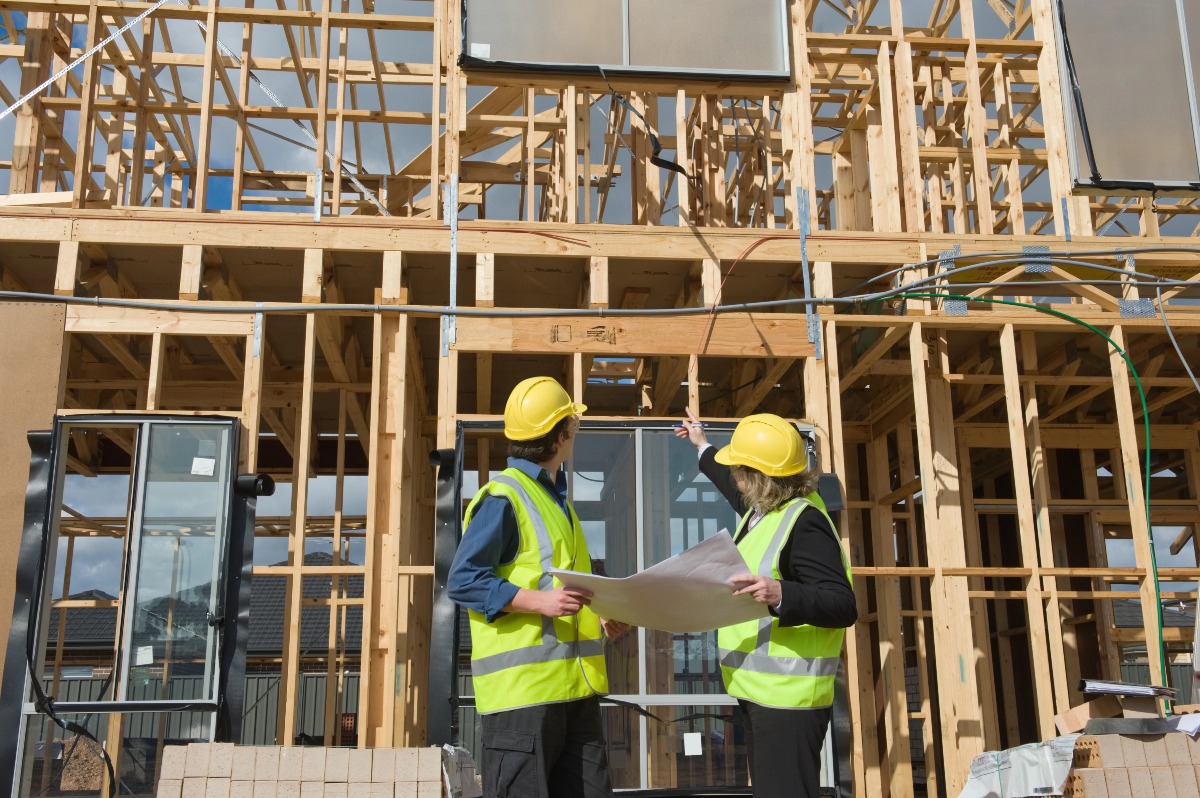
Project Manager at job site
The Fire Rebuild Process: Step-by-Step
Getting your life back on track after a fire can feel overwhelming, but understanding what happens during the rebuild helps you regain control. Let’s look at the key steps a fire rebuild contractor takes to restore your home from the ground up, with a sharp focus on safety, material strength, and quality.
Site Securing and Safety Protocols
Safety comes first, always. As soon as the fire is out and the property is cleared for entry, contractors secure the site to keep people and the remaining structure safe. Crews use sturdy fencing around the property to stop unauthorized entry and set up clear signage to warn of any hazards.
Careful checks happen before anyone does work:
- Structural stability: Experts inspect walls, floors, and ceilings to see if they need extra support or bracing.
- Removal of debris: All burned and hazardous material gets cleared out, reducing slip-and-fall risks.
- Protective gear: Workers wear masks, gloves, and boots to avoid breathing in dust or getting hurt by hidden nails or sharp edges.
- Fire and water damage checks: Special tools help spot lingering risks like gas leaks or electrical hazards.
- Controlled access: Only the right workers and inspectors get onto the site. This means fewer accidents and less mix-up on job roles.
These steps don't just protect workers—they also keep your rebuild project on solid ground for the next stages.
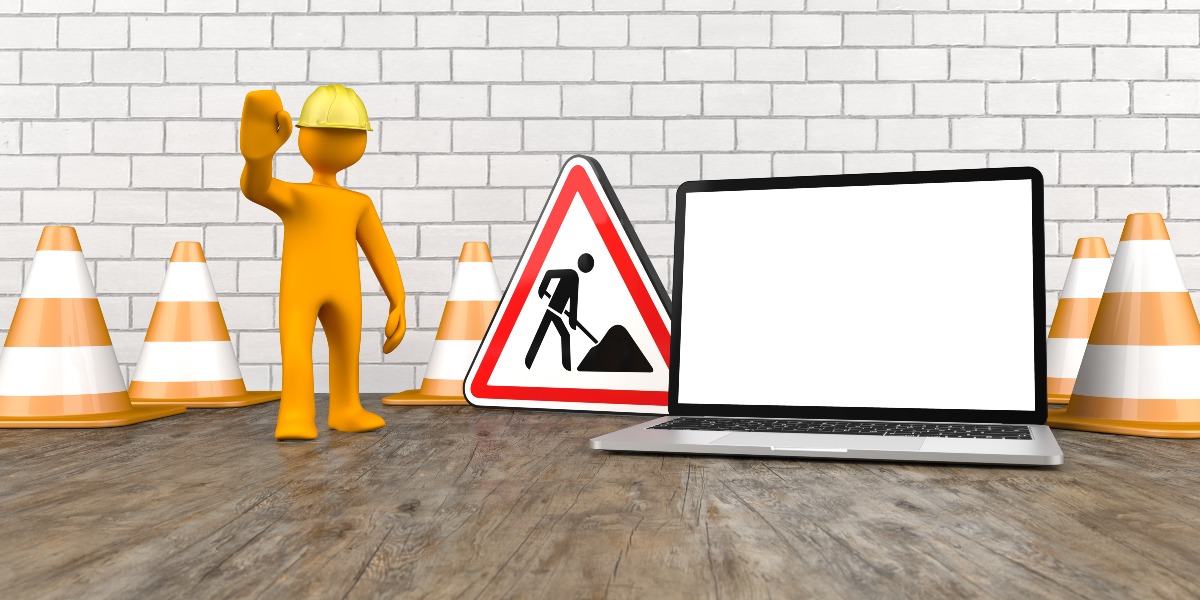
Safety Signs
Material Selection and Code Compliance
After a fire, using the right materials makes all the difference in the safety and long-term value of your home. Contractors pick products that stand up to heat and follow updated building codes, so your rebuilt house is tougher than before.
Here’s what goes into the process:
- Fire-resistant materials: Crews choose drywall, insulation, and roofing with proven fire ratings. Example materials include Type X fire-rated drywall and fiberglass-based insulation.
- Updated windows and doors: Safer, modern windows and steel doors replace damaged ones, offering better protection if another fire ever happens.
- Electrical and plumbing upgrades: New wires and pipes meet safer standards, helping prevent future fire risks.
- Code compliance checks: Each step—framing, wiring, plumbing—must pass inspections based on the latest building code. These rules change often, so only pros who keep up are ready for the job.
Contractors often present you with options, highlighting what boosts fire resistance and what’s required by law. You get a say in finishes without losing peace of mind about safety.
Quality Control and Final Inspections
Before you step back inside your restored home, every piece of work gets checked, tested, and signed off. Quality control is more than a checklist—it’s the difference between a job you can trust and questions that keep you up at night.
Here’s how contractors keep standards high:
- Ongoing inspections: After each big task (like framing or wiring), inspectors and crew leads walk the site and make sure work is done right.
- Moisture and smoke tests: Techs use meters and sniffers to check for hidden dampness or leftover smoke odor. This stops bigger problems from showing up later.
- Punch list review: Before the keys change hands, you and your contractor inspect the job together. Anything that needs a touch-up or extra fix goes on the list.
- City and code inspections: Official inspectors visit for the final thumbs-up, making sure work meets local safety standards and codes.
You can sleep easier knowing each nail, screw, and finish got a full check-up. Contractors hand you back a home that feels brand new, safe, and ready for living.
Frequently Asked Questions About Fire Rebuild Contractors
Homeowners facing fire damage often have a list of concerns when it's time to hire a fire rebuild contractor. Many questions pop up about the process, costs, timelines, and what to expect when someone steps in to bring your home back to life. This section tackles the most common questions, clears up myths, and offers honest answers to help you feel more confident in your next steps.
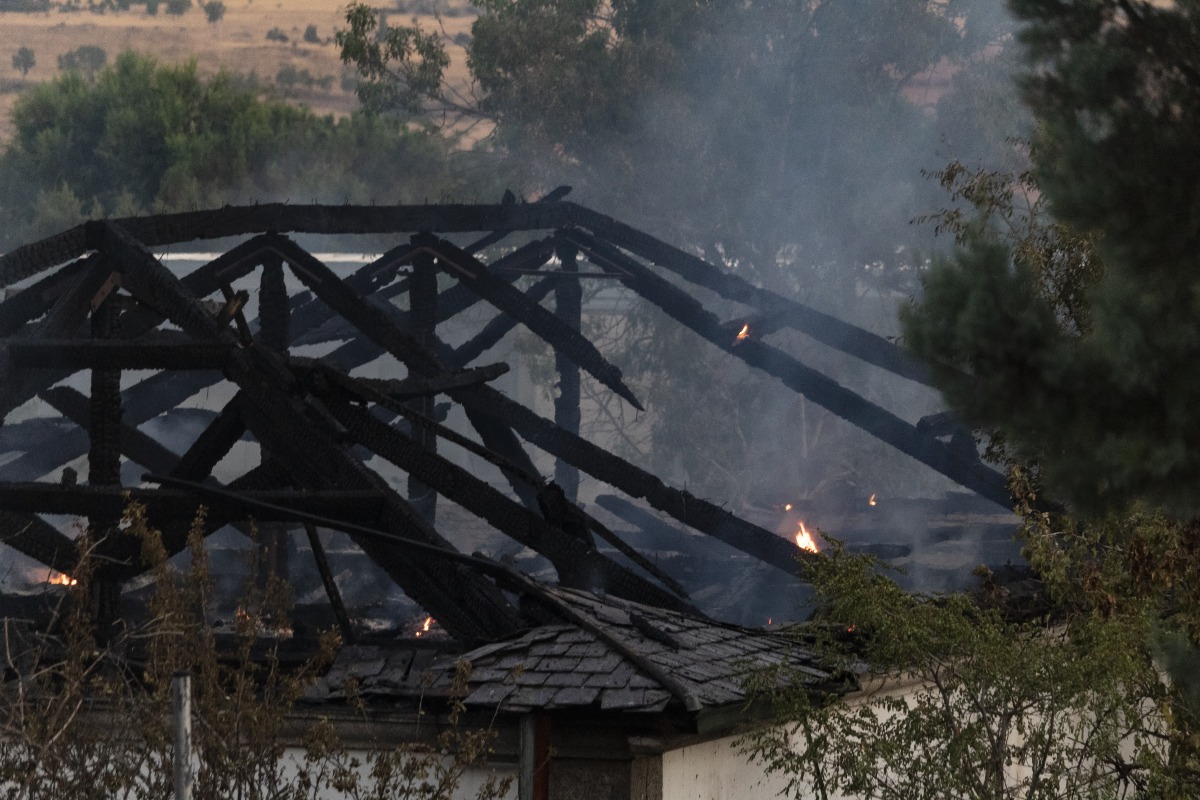
A building under fir
How Soon Should I Contact a Fire Rebuild Contractor After a Fire?
Reach out as soon as the firefighters leave and you have official clearance to enter the property. Quick action helps protect your home from further damage (due to weather or vandalism) and gets the cleanup started. Many contractors offer emergency drying or tarping services right away, which stops water damage from spreading.
Will My Insurance Cover the Full Cost of Rebuilding?
Most homeowners insurance policies cover fire damage, but coverage details vary. Here are a few key points:
- Not all costs are covered: Policies may limit coverage for upgrades or code-required changes.
- Deductibles apply: You’ll need to pay your policy’s deductible first.
- Document everything: Save receipts and take photos of the damage to avoid disputes.
A good fire rebuild contractor can help you work with your adjuster and provide the paperwork needed for your claim.
How Do I Be Sure the Rebuild Contractor is Qualified?
Check for up-to-date licenses, proper insurance, and fire restoration training (like IICRC certification). Ask for references and look up independent reviews. Trustworthy contractors are open about their experience, credentials, and past projects. If anything feels like a red flag, keep looking.
How Long Does a Typical Fire Restoration Project Take?
Every fire damage job is different, but rebuilding a single-family home often takes several months. Factors that affect the timeline include:
- Extent of damage
- Availability of materials
- Weather delays
- Permit or inspection hold-ups
A contractor should be able to give you a rough schedule after their first walk-through and keep you updated on changes.
What Happens if Hidden Damage is Found Mid-Project?
It’s common to uncover new problems once the work begins. When that happens:
- Your contractor should stop, document the issue, and discuss options with you.
- Honest contractors will adjust the estimate and get your approval before doing extra work.
- Good communication and clear paperwork help avoid misunderstandings or surprise bills.
Can I Live in My House While it’s Being Rebuilt?
This depends on the severity and location of the damage. Most of the time, you’ll need to make other living arrangements, at least during the demolition and main rebuilding. Sometimes, you may be able to live in a separate, undamaged part if safety isn’t an issue. Talk with your contractor about the specifics for your situation.
How Can I Protect Myself from Fraud or Poor Workmanship?
Fire damage scams are sadly common. Here’s how to stay safe:
- Only hire licensed and insured contractors
- Never pay the full cost upfront
- Get everything in writing(contract, payment schedule, scope of work)
- Check the contractor’s reputation through the Better Business Bureau and local agencies
- Don’t be pressured by scare tactics or rush jobs
What If I Want to Make Changes or Upgrades During the Rebuild?
Most contractors are happy to help if you want to take the chance to upgrade your kitchen, add energy-efficient features, or change floorplans. Make sure to talk about any ideas early so they can be worked into the scope. Remember, these changes are usually at your expense and may need new permits or insurance approval.
Quick tip: Clearly communicate your wants and sign off on any new costs before extra work starts.
Why Should I Trust a Specialist Rather Than a General Contractor?
Fire rebuild specialists have hands-on experience with fire, smoke, and water damage. They use advanced tools and follow strict rules to prevent future issues (like mold or hidden soot). General contractors may not have this specialized knowledge or training, leading to missed problems or unsafe repairs.
What Should I Watch for in the First Contract Meeting?
When meeting a potential contractor, look for:
- Clear explanations about their process
- Realistic timelines and expectations
- Transparency about costs and payment terms
- Proof of insurance, licensing, and certifications
- Examples of recent projects
Trust your gut. If something feels off or the contractor dodges questions, consider looking elsewhere.
These common questions help set expectations and put you in control as you move through fire recovery. With a solid contractor and the right information, you’ll make smarter decisions and avoid the most frequent headaches.
Conclusion
Hiring the right fire rebuild contractor is the foundation of getting your life back after a fire. A skilled pro manages each step, keeps you in the loop, and brings solid experience to the table. If you check credentials, ask for proof of training, and get everything in writing, you avoid extra headaches and costly mistakes.
The road to recovery moves faster when you work with someone who understands fire damage from the inside out. Take your time picking the right partner for your home. Your future comfort and peace of mind depend on it.
Thanks for reading, Click here please to contact us if you need any help to rebuild your Home.



